Cholesterol is a basic piece of animal cell layers; in that limit, it is arranged by all animal cells. In any case, it is helpless standing, cholesterol is principal until the end of time.
In any case, when present in huge levels in the blood, it increments confided in Source the peril of cardiovascular disorder.
Cholesterol, close by various substances, similar to fat and calcium, creates in plaques on the dividers of courses. As time goes on, this restricts the veins and can provoke challenges, including stroke and coronary scenes.
As demonstrated by the Centers for Disease Control and Prevention (CDC), in 2015–2016, 12%Trusted Source of people developed 20 years or more settled in the United States had raised cholesterol.
1. All cholesterol is horrendous
As referred to in the show, cholesterol is a basic piece of cell layers. Other than its essential occupation in layers, it is moreover a fundamental confided in Source in the production of steroid synthetic compounds, supplement D, and bile destructive.
Thusly, through huge levels are a perilous factor for sickness, with no cholesterol, we couldn’t persevere.
As Dr. Greenfield unveiled to MNT: “Cholesterol isn’t awful. It’s a guiltless spectator that is being abused in our state-of-the-art lifestyle today.”
Past cholesterol’s abilities in the body, the way it is delivered furthermore affects whether it is negative to prosperity.
Cholesterol is moved around confided in Source the body by lipoproteins, which are substances that involve fat and protein. This vehicle occurs in two headways.
Low-thickness lipoprotein (LDL) passes on cholesterol from the liver to cells, where it is used in a couple of cycles. People once in a while term LDL “horrendous” cholesterol, since huge levels of LDL cholesterol in the dissemination framework increase the risk of cardiovascular contamination.
High-thickness lipoprotein (HDL) is often insinuated as “fantastic” cholesterol, since it transports cholesterol back to the liver. Once there, cholesterol is taken out from the body, as such diminishing cardiovascular risk.
2. I’m a sound weight, so I can’t have raised cholesterol
“Benevolent, yes you can!” according to Dr. Greenfield. “Cholesterol balance is really a component of what we eat yet moreover our genetic characteristics. For example, an individual can be carried into the world with an innate tendency to not deal with cholesterol beneficially.”
“Since it’s inherited,” he explained, “it has been called familial hypercholesterolemia, and it might be essentially pretty much as expected as 1 in 200Trusted Source people. Weight is more a part of your gained assimilation and the amicability between calories ate up and calories depleted.”
Dr. Paz concurred: “Whether or not you have a strong weight, your cholesterol can be odd. Various components that influence your cholesterol are the food assortments you eat, your movement affinities, whether or not you smoke, and how much alcohol you drink.”
Additionally, as Dr. Lajoie told us, people who have a sound weight might have raised cholesterol levels, while certain people who have overweight probably won’t have raised cholesterol. “Cholesterol levels are affected by innate characteristics, thyroid limit, prescriptions, exercise, rest, and diet,” she explained.
“There are extra factors that you can’t modify and which can add to raised cholesterol, like your age and your innate characteristics,” she continued.
3. I would have appearances in case I had raised cholesterol
This is another legend. Dr. Paz told MNT: “Overall, raised cholesterol will not cause signs. That is the explanation it is endorsed to get intermittent blood testing to assess for raised cholesterol. The age you start screening and the repeat of screening is constrained by your particular risk factors.”
“The primary ‘incidental effects’ cholesterol can be connected with would be the late signs, when the outrageous cholesterol hoarding is liable for heart and vein mischief and blockage. This causes chest torture (angina), coronary disappointment, or even unexpected downfall,” said Dr. Greenfield.
Dr. Lajoie underscored that raised cholesterol “prompts the calm improvement of plaque in courses until it is exorbitantly outrageous with the end goal that strokes or coronary disappointments occur.”
4. If I eat heaps of cholesterol, I will have raised cholesterol levels
This subject is fairly more mind-boggling than one might expect. “The cholesterol one eats up doesn’t actually clearly relate with cholesterol levels,” Dr. Lajoie explained. “Eating sugars, [or] clear carbs, can achieve more raised cholesterol levels, whether or not someone doesn’t eat a great deal of cholesterol.”
She is like manner explained, “People who practice personality are more disinclined to see statures in cholesterol from eating cholesterol differentiated and inert people.”
As demonstrated by Dr. Greenfield, if we consume more cholesterol, we will likely extend cholesterol. He explained why:
“You don’t go to the store and buy a heap of cholesterol, notwithstanding, you do buy red meat, cheeses, and eggs. Red meat contains drenched fat and cholesterol. Cholesterol is an animal thing, so things that contain inundated fat will not simply fabricate cholesterol yet increase expressly the ‘terrible,’ or LDL, cholesterol, which then, gets put away in the vein mass of our veins.”
5. Everyone should zero in on a comparable cholesterol targets
“Bogus!” Dr. Paz said, “Your target level of cholesterol relies upon whether you have a past loaded up with explicit diseases — like a coronary disappointment and stroke — and your risk of encouraging these issues, which relies upon things like age and whether or not you have hypertension.”
In the plan, Dr. Greenfield told MNT, “The cholesterol rules dispersed by the American Heart Association (AHA), the American College of Cardiology, and the National Lipid Association call that a counterfeit declaration.”
He explained further: “For those of us who have not had any cardiovascular issues, the LDL cholesterol (the ‘dreadful’ cholesterol) should be under 100 milligrams for each deciliter (mg/dl). In any case, if you have a heart or vascular ailment — a history of coronary disappointment, stroke, or another vein vascular infection — and especially in case you have diabetes, the LDL cholesterol target should be under 70 mg/dl, if not lower.”
6. Just men need to worry about cholesterol levels
This is a steady dream, nonetheless, it isn’t precise. Dr. Paz explained: “According to the CDCTrusted Source, during 2015–2018, the transcendence of high outright cholesterol in U.S. adults was 11.4%. While considering men versus women, the inescapability of high complete cholesterol was 10.5% in men and 12.1% in women.”
“Coronary ailment is a comparable possibility business,” Dr. Greenfield agreed.
“Women, in the wake of losing the cautious effects of estrogens, begin to accelerate their risk of coronary disease and cultivate comparable risk as men,” he explained.
“Believe it or not, considering the way that women cultivate coronary ailment at a later age and live more, more cardiovascular disappointments are recorded in the female people than there are in men, yearly.”
He moreover let us in on that when women do experience a respiratory disappointment, they will overall have more unfortunate outcomes, and that women are at significantly higher risk of kicking the pail from coronary ailment than they are from chest sickness.
7. It’s absolutely impossible to get around my cholesterol level
This, luckily, is bogus. As demonstrated by Dr. Paz, “Other than bringing remedies to cut down your cholesterol, you can similarly deal with your cholesterol by keeping a strong weight, eating the right food sources, working out, going without smoking, and avoiding exorbitant alcohol use.”
“There is such a ton of that ought to be conceivable with a curiously raised cholesterol level,” Dr. Greenfield agreed.
“Diet and exercise are reliably the underlying advances and stay basic. Statins are amazingly effective in cutting down cholesterol and are secured. They have been around starting around 1987, with the more cutting-edge statins related with additionally created suitability, prosperity, and less coincidental impacts.”
Additionally, analysts are continuing to create. Dr. Greenfield explained that “more modern injectable PCSK-9 inhibitors have in like manner been shown to radically cut down cholesterol to levels that we’ve not seen beforehand.”
They are moreover secured and cause relatively few coincidental impacts, he told MNT.
8. I take statins, so I can eat what I need
“Wouldn’t that be nice in the event that it was substantial,” begun Dr. Greenfield, “but it isn’t? If you eat what you require and eat up calories to excess, you will gain weight. Exactly when you get an exorbitant measure of weight, especially around your gut district, you can cultivate a condition called a metabolic problem, which is a prediabetic state.”
He continued: “Statins are not weight decreasing drugs. Their obligation is to cut down the ‘horrendous’ LDL cholesterol, and your obligation is to move toward your body with yielding, which joins what you eat.”
9. I’m under 40, so I don’t just have my cholesterol checked
“In spite of the way that there is some conversation concerning when to start assessing for raised cholesterol,” Dr. Paz explained, “various social orders, similar to the AHA, recommend screening as exactly on schedule as age 20.”
In the arrangement, Dr. Greenfield told MNT: “The more drawn out your veins are washed in blood that contains too high a cholesterol level, your danger of cardiovascular infection sometime down the road increments. The proposals express that the primary cholesterol check ought to be performed during adolescent life, and on the off chance that you have a solid family ancestry, it ought to be really looked at sooner.”
For people with homozygous familial hypercholesterolemia, he told us, “cholesterol ought to be checked at age 2.”






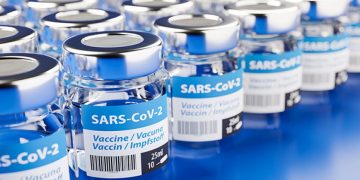









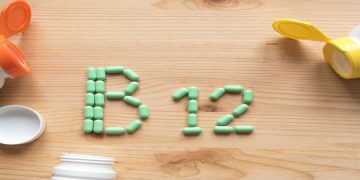



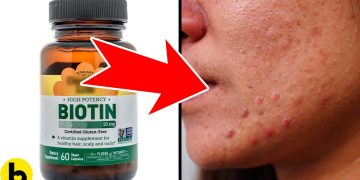



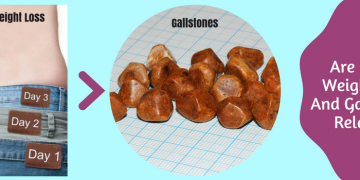
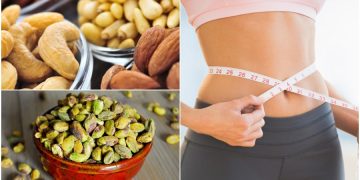






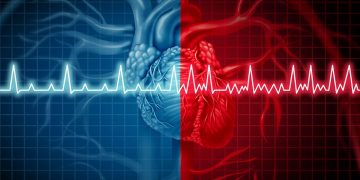
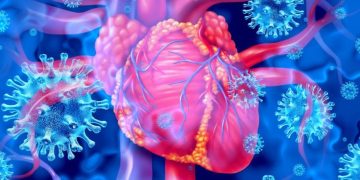
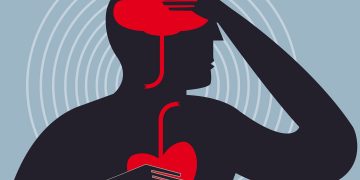
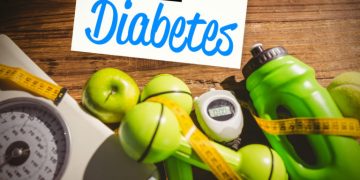
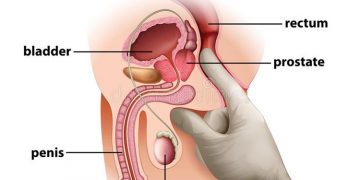














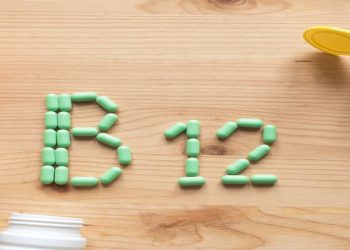




Discussion about this post